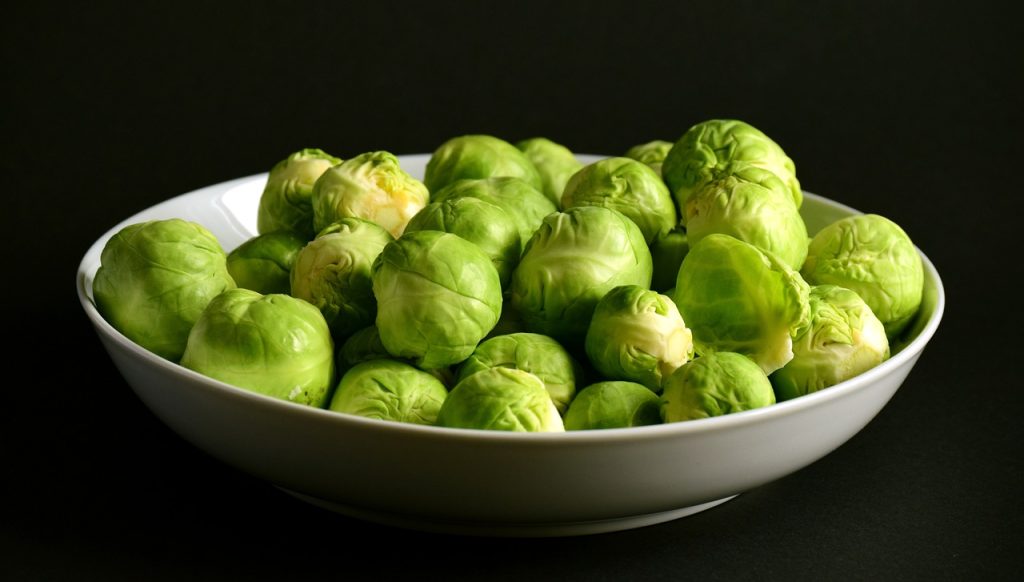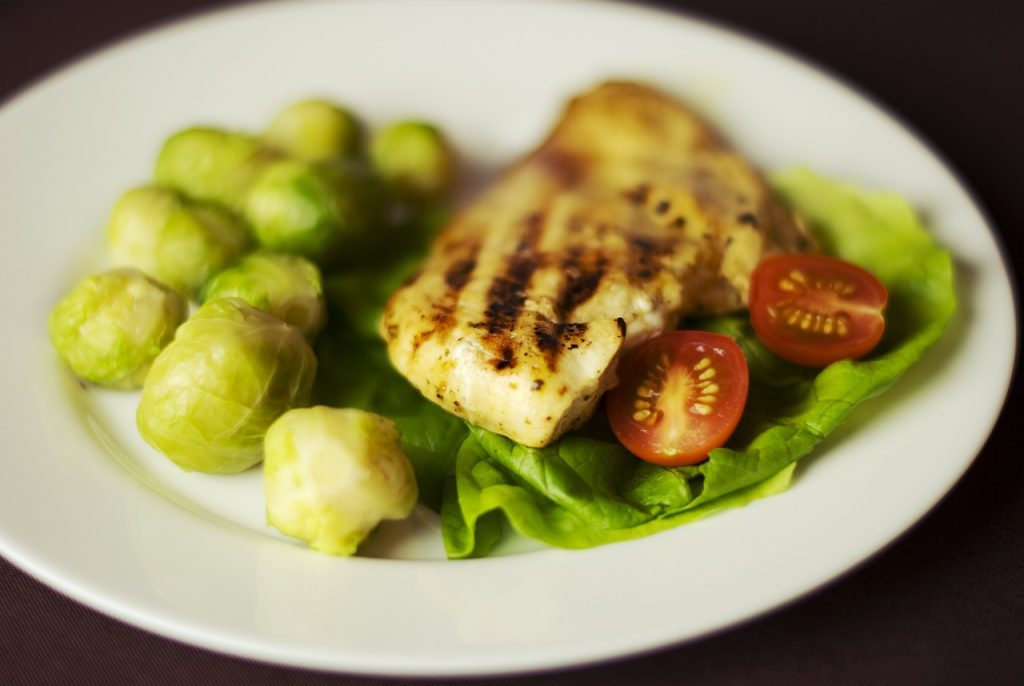Table of Contents
Brussels sprouts have a bad reputation for being an unappetizing vegetable that many people avoid. However, this small green vegetable is a nutritional powerhouse offering various health benefits. Packed with vitamins, minerals, and antioxidants, Brussels sprouts are an excellent addition to any diet. In this article, we will explore the many reasons why Brussels sprouts are good for you and how you can incorporate them into your meals.
What is Brussels Sprouts?
Brussels sprouts are a member of the cruciferous vegetable family, which also includes broccoli, cauliflower, and kale. They are small, leafy green vegetables that resemble miniature cabbages. Brussels sprouts are typically harvested in the fall and winter months.
Nutritional Fact of Brussels Sprouts
Brussels sprouts are a nutrient-dense food that is low in calories and high in fiber. One cup of cooked Brussels sprouts contains:
- 56 calories
- 4 grams of protein
- 4 grams of fiber
- 12 grams of carbohydrates
- 3 grams of sugar
- 17% of the daily recommended amount of vitamin C
- 137% of the daily recommended amount of vitamin K
- 10% of the daily recommended amount of vitamin A
- 6% of the daily recommended amount of iron
- 4% of the daily recommended amount of calcium
Health Benefits of Brussels Sprouts

Rich in Antioxidants
Brussels sprouts are packed with antioxidants, which are compounds that protect your cells from damage caused by free radicals. Free radicals are unstable molecules that can damage your DNA, proteins, and cell membranes, leading to chronic diseases such as cancer, heart disease, and Alzheimer’s. The antioxidants in Brussels sprouts, such as vitamin C, vitamin E, and beta-carotene, can neutralize free radicals and prevent oxidative stress.
Cancer-Fighting Properties
Brussels sprouts contain compounds called glucosinolates, which are broken down into biologically active compounds that have been shown to have anti-cancer properties. In particular, the glucosinolate called sulforaphane has been shown to help prevent and slow the growth of cancer cells.
Antioxidant properties
Brussels sprouts have antioxidant properties due to the presence of compounds such as vitamin C and carotenoids. These antioxidants can help protect the body from damage caused by free radicals, which can contribute to the development of chronic diseases such as cancer and heart disease.
Anti-inflammatory Effects
Brussels sprouts have anti-inflammatory effects due to their high content of compounds such as glucosinolates and flavonoids. These compounds have been shown to reduce inflammation in the body, which can help to prevent or manage a number of chronic diseases, including arthritis, heart disease, and certain types of cancer.
Supports Digestive Health
Brussels sprouts are a good source of dietary fiber, which is important for maintaining digestive health. Fiber can help to promote regular bowel movements and prevent constipation, as well as support the growth of beneficial bacteria in the gut. Additionally, the sulfur-containing compounds found in Brussels sprouts may help to protect the lining of the digestive tract and reduce the risk of digestive disorders such as inflammatory bowel disease.
Promotes Heart Health
Brussels sprouts may promote heart health due to their high levels of potassium, fiber, and folate. Potassium can help to regulate blood pressure, while fiber can lower cholesterol levels and reduce the risk of heart disease. Folate has also been shown to be important for heart health, as it can help to reduce levels of homocysteine, an amino acid that has been linked to an increased risk of heart disease. Additionally, Brussels sprouts contain antioxidants that can help to protect the heart against damage from free radicals.
Supports Bone Health
Brussels sprouts support bone health due to their high levels of vitamin K, which plays a key role in bone metabolism and helps to regulate calcium levels in the body. Adequate intake of vitamin K has been associated with a reduced risk of fractures and improved bone density. Additionally, Brussels sprouts are a good source of calcium, magnesium, and phosphorus, which are essential minerals for building and maintaining strong bones.
May Help Control Blood Sugar
Brussels sprouts may help control blood sugar levels due to their high fiber content and low glycemic index. The fiber in Brussels sprouts can slow down the absorption of sugar into the bloodstream, which can help to prevent spikes in blood sugar levels. Brussels sprouts are low in calories and carbohydrates, making them a good choice for people with diabetes or those looking to manage their blood sugar levels. Some studies have also suggested that the compounds found in Brussels sprouts may help to improve insulin sensitivity, which can further benefit blood sugar control.
Boosts Immunity
Brussels sprouts can help to boost immunity due to their high content of vitamin C, an essential nutrient for the immune system. Vitamin C helps to stimulate the production of white blood cells, which are responsible for fighting off infections and disease. Additionally, Brussels sprouts contain other immune-boosting nutrients, such as vitamin A, vitamin E, and zinc. The antioxidants found in Brussels sprouts may also help to protect the immune system by reducing oxidative stress and inflammation in the body.
May Help Prevent Cancer
Brussels sprouts may help to prevent cancer due to their high content of glucosinolates, a group of compounds that have been shown to have anti-cancer properties. Glucosinolates are converted into compounds called isothiocyanates, which have been found to inhibit the growth of cancer cells and prevent the formation of tumors in animal studies. Studies have shown that a diet rich in cruciferous vegetables, such as Brussels sprouts, may help to reduce the risk of several types of cancer, including lung, breast, and colon cancer.
Helps Improve Skin Health
Brussels sprouts can help improve skin health due to their high content of vitamin C and other antioxidants. Vitamin C is essential for collagen production, which is important for maintaining skin elasticity and preventing the signs of aging, such as wrinkles and sagging skin. Additionally, the antioxidants found in Brussels sprouts can help to protect the skin from damage caused by UV radiation and environmental pollutants, which can contribute to premature aging and skin damage. Some studies have also suggested that the sulfur-containing compounds found in Brussels sprouts may have anti-inflammatory properties that could benefit skin health.

May Help Reduce the Risk of Cognitive Decline
Brussels sprouts may help to reduce the risk of cognitive decline due to their high levels of vitamin K, which has been shown to have neuroprotective effects. Vitamin K plays a key role in the formation of sphingolipids, a type of fat that is essential for the structure and function of brain cells. Some studies have also suggested that vitamin K may help to improve memory and cognitive function in older adults.
Lowers Risk of Obesity
Brussels sprouts may help to lower the risk of obesity due to their low calorie and carbohydrate content, high fiber content, and ability to promote satiety. Foods that are high in fiber and low in calories can help to promote feelings of fullness and reduce overall calorie intake, which can contribute to weight loss and weight management. Some studies have also suggested that the compounds found in Brussels sprouts may help to boost metabolism and promote fat burning, further supporting weight loss efforts.
Brussels Sprouts useful in Pregnancy
Brussels sprouts may be beneficial during pregnancy due to their high content of important nutrients such as folate, vitamin C, and vitamin K. Folate is a B-vitamin that is essential for healthy fetal development and can help to prevent birth defects of the brain and spine. Brussels sprouts are a good source of folate, with one cup providing over 25% of the recommended daily intake for pregnant women. Vitamin C is also important during pregnancy, as it helps to support the immune system and promote healthy tissue growth. Finally, vitamin K is essential for blood clotting and bone health, both of which are important during pregnancy. However, pregnant women should also be aware that Brussels sprouts, like other cruciferous vegetables, can cause gas and bloating, and should be consumed in moderation to avoid discomfort.

How to Incorporate Brussels Sprouts into Your Diet?
Roast them
Toss Brussels sprouts with olive oil, salt, and pepper, and roast them in the oven until they are crispy and caramelized. This is a simple and delicious way to enjoy Brussels sprouts as a side dish.
Saute them
Shred Brussels sprouts and toss them with your favorite salad ingredients, such as avocado, nuts, and cheese. Add a simple dressing of olive oil and lemon juice for a refreshing and healthy salad.
Shred them
Shred Brussels sprouts using a mandoline or food processor and use them in salads or as a substitute for cabbage in coleslaw.
Steam them
Steam Brussels sprouts until they are tender and serve them as a side dish with a squeeze of lemon juice and a sprinkle of salt.
Bake them
Make a gratin by baking Brussels sprouts in a cheesy sauce, or try baking them with other vegetables like sweet potatoes and carrots for a flavorful side dish.
Fry them
Cut Brussels sprouts in half and deep fry them until they are crispy and golden brown, and serve them with a dipping sauce like honey mustard or ranch.
Grill them
Skewer Brussels sprouts and grill them until they are tender and slightly charred, or place them directly on the grill grates for a smoky flavor.
Healthy Recipes with Brussels Sprouts

Roasted Brussels Sprouts with Balsamic Glaze
- Preheat oven to 400°F.
- Cut 1 pound of Brussels sprouts in half and toss with 2 tablespoons of olive oil and salt and pepper to taste.
- Roast in the oven for 20-25 minutes until tender and crispy.
- Drizzle with 2 tablespoons of balsamic vinegar and serve.
Brussels Sprouts and Quinoa Salad
- Cook 1 cup of quinoa according to package directions.
- Cut 1 pound of Brussels sprouts in half and shred using a food processor or knife.
- In a large bowl, combine the cooked quinoa, shredded Brussels sprouts, 1 diced avocado, 1/2 cup of sliced almonds, and a handful of chopped fresh herbs (such as parsley, cilantro, or mint).
- Dress with a mixture of 2 tablespoons of olive oil, 2 tablespoons of lemon juice, and salt and pepper to taste.
Garlic Butter Brussels Sprouts
- Cut 1 pound of Brussels sprouts in half.
- Melt 2 tablespoons of butter in a large skillet over medium heat.
- Add 3 cloves of minced garlic and saute for 1-2 minutes.
- Add the Brussels sprouts and saute for 10-12 minutes until tender and browned.
- Season with salt and pepper to taste and serve.
Brussels Sprouts and Sweet Potato Hash
- Heat 2 tablespoons of olive oil in a large skillet over medium heat.
- Add 1 diced sweet potato and saute for 5-7 minutes until tender.
- Add 1 pound of halved Brussels sprouts and saute for an additional 5-7 minutes until tender and crispy.
- Season with salt, pepper, and a pinch of smoked paprika to taste.
Side Effect of Brussels Sprouts
Gas and bloating
Brussels sprouts are high in fiber and complex carbohydrates, which can be difficult for some people to digest, leading to gas and bloating.
Thyroid issues
Brussels sprouts are a member of the cruciferous vegetable family, which contains compounds that can interfere with thyroid function in some people. Those with thyroid issues may want to limit their intake.
Interference with blood thinners
Brussels sprouts contain vitamin K, which can interfere with blood-thinning medications like warfarin.
Allergic reactions
Some people may be allergic to Brussels sprouts, leading to symptoms such as hives, swelling, or difficulty breathing.
Risk of foodborne illness
Like all fresh produce, Brussels sprouts can be contaminated with harmful bacteria such as E. coli or Salmonella, which can cause foodborne illness if not properly washed and cooked.
Interference with iron absorption
Brussels sprouts contain compounds that can inhibit the absorption of non-heme iron, which is found in plant-based foods.
Interaction with medications
Brussels sprouts can interact with certain medications, including those used to treat hypothyroidism and blood thinners.
FAQs
Q: Are Brussels sprouts good for weight loss?
A: Yes, Brussels sprouts are low in calories and high in fiber, making them a great addition to a weight-loss diet.
Q: Can Brussels sprouts cause gas?
A: Like other cruciferous vegetables, Brussels sprouts can cause gas in some people. To reduce gas, try cooking them thoroughly and eating them in moderation.
Conclusion
In conclusion, Brussels sprouts are an incredibly nutritious and delicious addition to your diet. They are rich in vitamins, minerals, and antioxidants, and can help to promote overall health and well-being. Whether you roast, saute, or steam them, Brussels sprouts will become a staple in your kitchen. So next time you’re at the grocery store, be sure to pick up a bag of these little green vegetables and start enjoying the many health benefits they have to offer.















